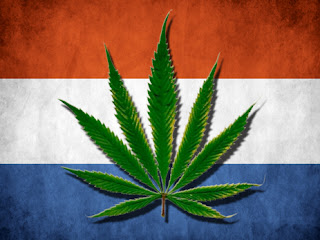 |
| VW E-GOLF Electric |
A majority of elected officials in the Tweede Kamer, the lower house of Parliament, supported a motion proposed by the Labor Party (PvdA) to ban all diesel and petroleum cars from the Dutch market starting in 2025. If enacted, this proposal would allow existing fossil fuel-powered cars to stay on the road until they died, but when it comes to new sales, only electric cars would be permitted.
"We are ambitious, perhaps other parties are less so," PvdA leader Diederik Samsom told the local NL Times.
 |
| Renault Zoe - Electric |
While it is still unclear whether or not the motion will pass, some electric enthusiasts see the proposal as progress all the same. This law would not only affect Dutch drivers, but would also require more electric vehicle output from car manufacturers, and potentially destigmatize electric vehicles as a niche purchase.
"One big thing that's preventing more people from buying [electric cars] is awareness – people just don't know about them," Joel Levin, executive director of Plug In America, tells The Christian Science Monitor in a phone interview Thursday. "It is a pretty big shift for how you think about your car."
 |
| Fiat -500 Electric |
In 2012, the transportation sector consumed the most energy of all sources, constituting 29 percent of all consumption in the Netherlands.
In the United States, by comparison, transportation represents 27 percent of the country's consumption, according to a 2015 report from the Energy Information Administration.
 |
| BMW -i3 Electric |
The Dutch energy company Eneco, partnering with VIVENS rail companies, announced a plan in 2015 to make a fleet of trains powered entirely by wind energy within the next three years. And for almost a year now, the Netherlands has boasted the world's first solar road, a bike path made of solar panels that generates enough electricity to power a small home for a year.
The Netherlands has also announced plans to pave roads with recycled plastic, which they market as durable and low maintenance, with a smaller environmental impact than asphalt production.
 |
| Mercedes B-Class Electric |
"For people who are aware [of electric cars], there are a few myths," Mr. Levin says. Primarily, many people have the misconception that electric vehicles are expensive, slow, unsafe, and inconvenient.
"They are not fancy cars for rich people – there are many affordable ones. And if you compare apples to apples, the total coast of ownership is very competitive," he explains.
Along with these myths, there are also a lot of positives that gas or diesel-powered cars don't experience. "Apart from any environmental benefits, they are a pleasure to drive, there is tremendous power," he says. "And maintenance is low – there is no engine, so if you change the brakes and batteries, nothing really could go wrong."
Charging is easy, he adds; it can be done at home overnight. "People worry about running out of power, but the [drivers] that run out of power are the same ones that run out of gas."
Almere-digest







